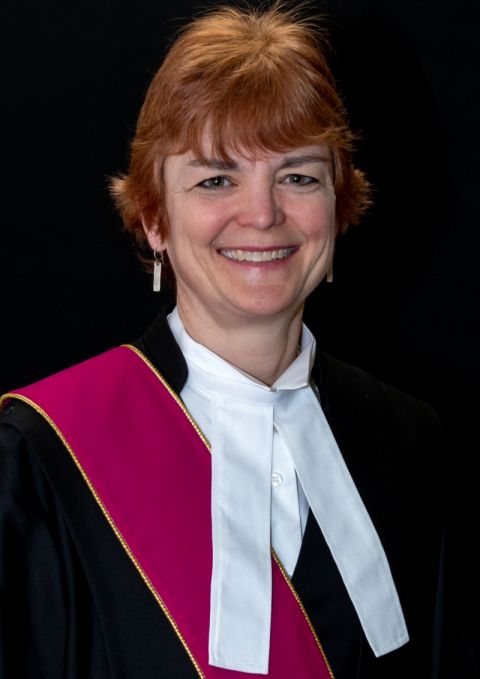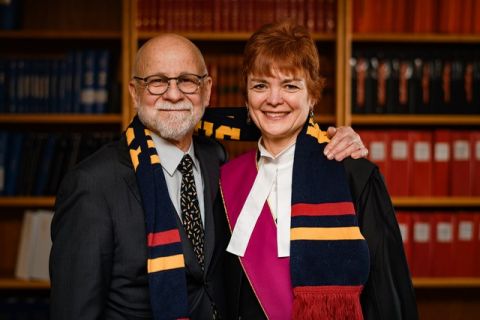

Some observers are hailing the appointment of Suzanne Duncan to the bench of the Supreme Court of Yukon as a historical milestone – marking as it does the first time the court has a female gender balance. However, Duncan herself downplays the significance of this development.
“It’s really not all that big a deal. The Supreme Court of Yukon only has three judges,” the Law’85 (Artsci’82) grad says with a laugh.
“True, I’m only the second woman ever appointed to the territory’s supreme court, but I see this as part of the law’s natural evolution. With so many women now attending law schools and working in the legal profession, it would be strange if we didn’t see more women being appointed to the bench.”
Of course, there was much more to Duncan’s judicial appointment than gender considerations. The Oakville, ON, native is eminently qualified, having more than 30 years of varied legal experience. And what’s more, she’s a people person with a keen sense of community.
In addition to receiving “a first-class legal education” at Queen’s Law, she involved herself in campus life, during both her undergrad and law school years. “I learned, served, and did my best to gave back to the community,” says Duncan.
She articled with McCarthy Tétrault LLP, and then spent 13 years practising with the firm, rising to become a partner. However, she ultimately decided she didn’t want to spend her entire legal career on Bay Street, and so she took a position at Toronto offices of the Department of Justice Canada.
She was working there when she took a life-changing summer vacation trip to the Yukon. Duncan fell in love with the territory’s scenic grandeur, lifestyle, and the sense of community. “People still take care of each other. There’s a small-town feel to life here, and I think the Yukon is a really special place.”
After transferring north in 2006, Duncan spent more 12 years with Justice Canada, where she learned about Indigenous rights issues from the Crown’s perspective. In hopes of broadening her perspectives, in early 2018 Duncan took a job as legal counsel for the Kwanlin Dun First Nation. She was serving in that capacity in November, when her judicial appointment was announced.
While Duncan’s learning curve is steep and she acknowledges the challenges she faces going forward, she’s excited about this next phase of her legal career. “I believe in the values of community and public service,” she says. “I see becoming a judge as an extension of those beliefs.”
By Ken Cuthbertson